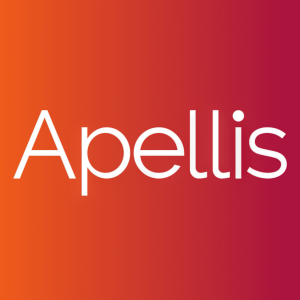Apellis to Present New Data Supporting the Efficacy and Safety of Pegcetacoplan in PNH at the American Society of Hematology Annual Meeting
Rhea-AI Summary
Apellis Pharmaceuticals (Nasdaq: APLS) announced that eight abstracts highlighting the efficacy of pegcetacoplan for treating paroxysmal nocturnal hemoglobinuria (PNH) have been accepted for the virtual American Society of Hematology Annual Meeting from December 5-8, 2020. New analyses from the Phase 3 PEGASUS study show superior treatment response and quality-of-life improvements with pegcetacoplan compared to eculizumab. The matching-adjusted indirect comparison indicated notable enhancements in clinical outcomes when compared to ravulizumab, demonstrating pegcetacoplan's potential to redefine PNH care standards.
Positive
- None.
Negative
- None.
News Market Reaction 1 Alert
On the day this news was published, APLS gained 0.27%, reflecting a mild positive market reaction.
Data tracked by StockTitan Argus on the day of publication.
- Eight abstracts accepted for presentation emphasize the potential of targeted C3 therapy to elevate the standard of care in paroxysmal nocturnal hemoglobinuria (PNH)
- New analyses from the Phase 3 PEGASUS head-to-head study demonstrate greater treatment response and quality-of-life improvements with pegcetacoplan versus eculizumab, a C5 inhibitor
- Using a matching-adjusted indirect comparison (MAIC), improvements in clinical, hematological and quality-of-life outcomes were demonstrated in patients treated with pegcetacoplan compared to ravulizumab, a long-acting C5 inhibitor
WALTHAM, Mass., Nov. 05, 2020 (GLOBE NEWSWIRE) -- Apellis Pharmaceuticals, Inc. (Nasdaq: APLS), a global biopharmaceutical company and leader in targeted C3 therapies, today announced that eight abstracts were accepted for presentation at the virtual American Society of Hematology (ASH) Annual Meeting to be held December 5-8, 2020. Data support the positive efficacy and safety of pegcetacoplan, a targeted C3 therapy, for the treatment of paroxysmal nocturnal hemoglobinuria (PNH).
Highlights include new analyses from the Phase 3 head-to-head PEGASUS study, which demonstrate a markedly greater proportion of patients achieved better hematological responses as well as quality-of-life improvements with pegcetacoplan versus eculizumab, a C5 inhibitor. Additionally, using a matching-adjusted indirect comparison (MAIC) methodology, patients treated with pegcetacoplan enrolled in the PEGASUS study experienced greater improvements in hemoglobin stabilization, transfusion avoidance and fatigue compared to patients treated with ravulizumab, a long-acting C5 inhibitor, using the data from the ALXN1210-PNH-302 published study. In the absence of a clinical head-to-head study, MAIC is a valid and accepted method for comparative effectiveness research used by health technology assessment bodies across the world.1,2
“We continue to see in the analyses that pegcetacoplan demonstrated a substantial improvement over C5 inhibition,” said Federico Grossi, M.D., Ph.D., Chief Medical Officer of Apellis. “The breadth of data that we are presenting at ASH this year emphasizes the potential of pegcetacoplan to elevate the standard of care in PNH.”
Accepted abstracts regarding pegcetacoplan include:
- Results of the PEGASUS Phase 3 Randomized Trial Demonstrating Superiority of the C3 Inhibitor, Pegcetacoplan, Compared to Eculizumab in Patients with Paroxysmal Nocturnal Hemoglobinuria – #2579 – December 7, 7:00 a.m. – 3:00 p.m. PT
- Categorized Hematologic Response to Pegcetacoplan Versus Eculizumab in Patients with Paroxysmal Nocturnal Hemoglobinuria: Post Hoc Analysis of Data from a Phase 3 Randomized Trial (PEGASUS) – #2588 – December 7, 7:00 a.m. – 3:00 p.m. PT
- Effect of Pegcetacoplan on Quality of Life in Patients with Paroxysmal Nocturnal Hemoglobinuria from the PEGASUS Phase 3 Trial Comparing Pegcetacoplan to Eculizumab – #764 – December 5, 7:00 a.m. – 3:30 p.m. PT
- Pegcetacoplan is Superior to Eculizumab in Patients with Paroxysmal Nocturnal Hemoglobinuria Regardless of Prior Transfusion Requirement – #1681 – December 6, 7:00 a.m. – 3:30 p.m. PT
- C3 Inhibition with Pegcetacoplan in Patients with Paroxysmal Nocturnal Hemoglobinuria: Results from the PADDOCK and PALOMINO Trials – #753 – December 5, 7:00 a.m. – 3:30 p.m. PT
- Comparative Effectiveness of Pegcetacoplan Versus Ravulizumab in Patients with Paroxysmal Nocturnal Hemoglobinuria Previously Treated with Eculizumab: A Matching-Adjusted Indirect Comparison – #2581 – December 7, 7:00 a.m. – 3:00 p.m. PT
Accepted abstracts regarding additional data in the PNH population include:
- Real-World Eculizumab Dosing Patterns among Patients with Paroxysmal Nocturnal Hemoglobinuria in a US Population – #3412 – December 7, 7:00 a.m. – 3:00 p.m. PT
- Real-World Treatment Patterns and Healthcare Resource Utilization (HRU) of Patients with Paroxysmal Nocturnal Hemoglobinuria (PNH) Receiving Eculizumab in a US Population – #3415 – December 7, 7:00 a.m. – 3:00 p.m. PT
About the PEGASUS Study
The PEGASUS study (APL2-302; NCT03500549) is a multi-center, randomized, active-comparator controlled Phase 3 study in 80 adults with paroxysmal nocturnal hemoglobinuria (PNH). The primary objective of this study was to establish the efficacy and safety of pegcetacoplan compared to eculizumab. Participants must have been on eculizumab (stable for at least three months) with a hemoglobin level of <10.5 g/dL at the screening visit. During the four-week run-in, patients were dosed with 1080 mg of pegcetacoplan twice weekly (n=41) in addition to their current dose of eculizumab. During the 16-week randomized, controlled period, patients were randomized to receive either 1080 mg of pegcetacoplan twice weekly or their current dose of eculizumab (n=39). All participants completing the randomized controlled period entered the open-label pegcetacoplan treatment period.
About the Matching-Adjusted Indirect Comparison Analysis
Using a matching-adjusted indirect comparison (MAIC) methodology, individual patient data from the PEGASUS study were compared to aggregate, published results from the ALXN1210-PNH-302 study, which compared ravulizumab and eculizumab among patients with PNH who previously were treated with eculizumab. To adjust for cross-study differences in baseline characteristics, propensity score weighting was used to balance demographic and clinical characteristics. Outcomes assessed from the PEGASUS study at week 16 and the ALXN1210-PNH-302 study at week 26 included transfusion avoidance, number of units transfused, hemoglobin stabilization and change in Functional Assessment of Chronic Illness Therapy (FACIT)-Fatigue score. As with other MAIC analyses, matching may not adjust for all confounding factors due to differences inherent in study design and entry criteria.
About Pegcetacoplan (APL-2)
Pegcetacoplan is an investigational, targeted C3 therapy designed to regulate excessive activation of the complement cascade, part of the body’s immune system, which can lead to the onset and progression of many serious diseases. Pegcetacoplan is a synthetic cyclic peptide conjugated to a polyethylene glycol polymer that binds specifically to C3 and C3b. Apellis is evaluating pegcetacoplan in several clinical studies across hematology, ophthalmology, nephrology, and neurology. Pegcetacoplan was granted Fast Track designation by the U.S. Food and Drug Administration (FDA) for the treatment of paroxysmal nocturnal hemoglobinuria (PNH) and the treatment of geographic atrophy, and received orphan drug designation for the treatment of C3G by the FDA and European Medicines Agency. For additional information regarding our clinical trials, visit https://apellis.com/our-science/clinical-trials.
About Paroxysmal Nocturnal Hemoglobinuria (PNH)
PNH is a rare, chronic, life-threatening blood disorder characterized by the destruction of oxygen-carrying red blood cells through extravascular and intravascular hemolysis. Persistently low hemoglobin can result in frequent transfusions and debilitating symptoms such as severe fatigue, hemoglobinuria and difficulty breathing (dyspnea). A retrospective analysis shows that, even on eculizumab, approximately
About Apellis
Apellis Pharmaceuticals, Inc. is a global biopharmaceutical company that is committed to leveraging courageous science, creativity, and compassion to deliver life-changing therapies. Leaders in targeted C3 therapies, we aim to develop transformative therapies for a broad range of debilitating diseases that are driven by excessive activation of the complement cascade, including those within hematology, ophthalmology, nephrology, and neurology. For more information, please visit http://apellis.com.
Apellis Forward-Looking Statement
Statements in this press release about future expectations, plans and prospects, as well as any other statements regarding matters that are not historical facts, may constitute “forward-looking statements” within the meaning of The Private Securities Litigation Reform Act of 1995. These statements include, but are not limited to, statements relating to the implications of preliminary clinical data. The words “anticipate,” “believe,” “continue,” “could,” “estimate,” “expect,” “intend,” “may,” “plan,” “potential,” “predict,” “project,” “should,” “target,” “will,” “would” and similar expressions are intended to identify forward-looking statements, although not all forward-looking statements contain these identifying words. Actual results may differ materially from those indicated by such forward-looking statements as a result of various important factors, including: whether the company’s clinical trials will be fully enrolled and completed when anticipated; whether preliminary or interim results from a clinical trial will be predictive of the final results of the trial; whether results obtained in preclinical studies and clinical trials will be indicative of results that will be generated in future clinical trials; whether pegcetacoplan will successfully advance through the clinical trial process on a timely basis, or at all; whether the results of the company’s clinical trials will warrant regulatory submissions and whether pegcetacoplan will receive approval from the FDA or equivalent foreign regulatory agencies for GA, PNH, CAD, C3G, IC-MPGN, ALS or any other indication when expected or at all; whether, if Apellis’ products receive approval, they will be successfully distributed and marketed; and other factors discussed in the “Risk Factors” section of Apellis’ Quarterly Report on Form 10-Q filed with the Securities and Exchange Commission on November 2, 2020 and the risks described in other filings that Apellis may make with the Securities and Exchange Commission. Any forward-looking statements contained in this press release speak only as of the date hereof, and Apellis specifically disclaims any obligation to update any forward-looking statement, whether as a result of new information, future events or otherwise.
Media Contact:
Lissa Pavluk
media@apellis.com
617.420.4839
Investor Contact:
Sam Martin / Maghan Meyers
Argot Partners
sam@argotpartners.com / maghan@argotpartners.com
212.600.1902
1. Phillippo DM, Ades AE, Dias S, Palmer S, Abrams KR, and Welton NJ. Methods for Population-Adjusted Indirect Comparisons in Health Technology Appraisal. Medical Decision Making 2018;38(2): 200-211.
2. Signorovitch JE, Sikirica V, Erder MH, Xie J, Lu M, Hodgkins PS, Betts KA, and Wu EQ. Matching-Adjusted Indirect Comparisons: A New Tool for Timely Comparative Effectiveness Research. Value in Health 2012;15(6):940-947.
3. McKinley C. Extravascular Hemolysis Due to C3-Loading in Patients with PNH Treated with Eculizumab: Defining the Clinical Syndrome. Blood. 2017;130:3471.







